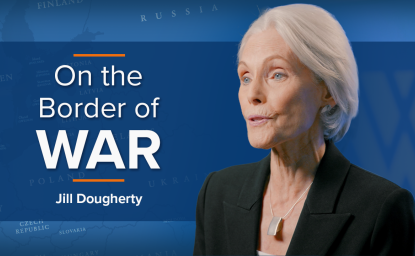Quartet Meeting: Above All Do No Harm
By Aaron David Miller
Public Policy Scholar
July 8, 2011
Confused about the state of the Israeli-Palestinian peace process? Don't be. The venue and timing of the Quartet meeting taking place on July 11 tell you everything you need to know about the game currently in play on Israeli-Palestinian peace-making.
Where? Washington, DC. The Obama administration (lacking an effective strategy for 30 months) is now trying to take the lead and come up with one under very difficult circumstances.
When? The meeting is taking place two months before September, a date that no longer simply represents a month in the calendar year; but instead, according to some, has come to symbolize a catastrophe: a Palestinian initiative at the UN.
The objective of the meeting is clearly not just to produce another Quartet statement but one that Israelis and Palestinians might just accept.
Never pray for anything you really don't want; the last thing the Obama administration needs is a premature launch of talks (you remember September 2010) that fizzles, or worse explodes, leaving the already half dead peace process even deader, with the president looking feckless.
At the same time, the administration seems terrified at the prospect of letting matters drift and the prospects of a Palestinian resolution at the UN for which it has no real response. Such an outcome could trigger violence when it becomes clear to Palestinians that very little has changed; or alternatively, it could trigger Israeli unilateral actions in response.
The answer? Try to get some agreement on a core issue; most likely June 1967 borders with swaps (the Israelis are reportedly moving closer) and get a process underway that prepares for the resumption of talks without forcing a certain date. It won't be easy. The Israelis will want things in the statement the Palestinians won't like; but if some clever formula emerges which allows agreement on some kind of process that isn't make or break, that would be a good thing. If an agreement on June 1967 borders with swaps could be reached, that would be even more significant. None of this will get the Palestinians to give up on the UN and none of it will launch a serious negotiation (you still have the contentious issues of Jerusalem and refugees); but it will allow the administration to work quietly with both sides and provide more time and space to figure out how to avoid a train wreck in September.
Reporters may reach Aaron David Miller at 202-390-4207 (cell) or 202-691-4040 (office), or by e-mail at aaron.miller@wilsoncenter.org.
Read more about Aaron David Miller. His forthcoming book is Can America Have Another Great President? (Bantam Books, 2012)
For further media inquiries, contact Drew Sample at 202-691-4379 or at drew.sample@wilsoncenter.org.
The Woodrow Wilson International Center for Scholars is the living, national memorial to President Wilson, established by Congress in 1968 and headquartered in Washington, D.C. The Center establishes and maintains a neutral forum for free, open, and informed dialogue. It is a nonpartisan institution, supported by public and private funds and engaged in the study of national and world affairs.
Conclusions or opinions expressed in Wilson Center Expert Sources belong to the individual experts themselves and do not necessarily reflect the views of the Center's staff, fellows, trustees, advisory groups, or any individuals or organizations that provide financial support to the Center.
To stop receiving alerts from Wilson Center Expert Sources, e-mail wilsoncenternews@wilsoncenter.org with "unsubscribe" in the subject line.


